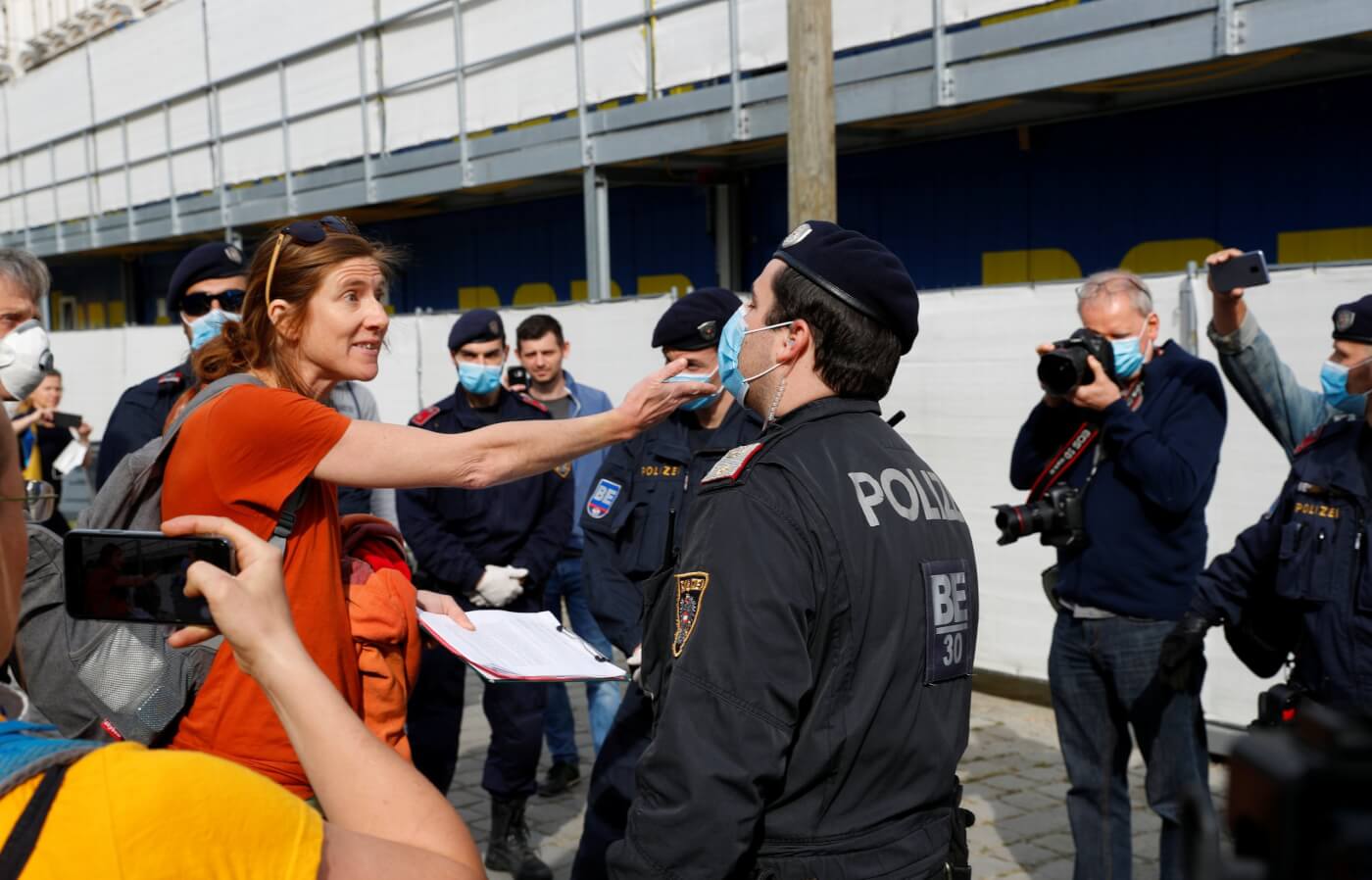Across the world, COVID-19 has unleashed a tidal wave of state power. What can we do to ensure that the great pandemic of 2020 is not remembered for an unravelling of democratic values, a disintegration of the rule of law; an irreversible erosion of hard-won rights and freedoms?
The risk is very real. Authoritarianism, the enemy of personal freedom, dines richly on fear and uncertainty. As a former UK Chief Justice recently remarked, we often give up our freedom voluntarily in return for promised protection from some external threat. Accepting this aspect of our humanity leads us to understand that passivity is dangerous. Today, more so than ever, the long-term well-being of our societies requires us to engage our leaders: to support them yes, but also to question and challenge.
The first step is to be absolutely clear about what is acceptable during a time of crisis and what is not. All political systems recognise the need for extraordinary action in extraordinary times. Even in liberal democracies, additional powers can be granted and certainly can be suspended during a health or other public emergency, ‘which threatens the life of the nation’. The rationale is straightforward. When things go terribly wrong, our leaders need the space and capacity to respond swiftly and effectively. As citizens, we agree to make a temporary sacrifice in order to secure our longer-term freedom and prosperity.
In the real world, things are never that simple. Too often, the rights and freedoms we sacrifice in extraordinary times are permanently damaged. For example, in the aftermath of the 2011 US terrorist attacks, ‘temporary’ powers that infringed on basic rights to privacy and security were granted to national security agencies. Many of these laws are still with us, now routinely used for non-terrorism purposes: from migration control to suppression of the media.
How do we distinguish between a legitimate response to an extreme threat on the one hand, and a dangerous overreach on the other?
In some cases, the answer seems straightforward. In Cambodia for example, the recently passed COVID-19 emergency law grants an already dictatorial and unchallenged government vast new powers: from property seizure to media controls. Hungary is on the verge of an indefinite state of emergency that will allow its Prime Minister to rule without reference to Parliament until he decides the emergency is over. And the Philippines’ response has quickly morphed from lockdown to crackdown.
Fortunately, such instances of shameless power-grabbing remain the exception, at least for now. But the trend is clear, with Oxford University’s COVID-19 government response tracker confirming that governments of every political stripe are granting themselves sweeping new powers to forcibly detain individuals; close schools; shut borders; restrict internal movement; limit free speech; impose curfews and ban public gatherings. Whether by executive fiat or via parliaments, these laws are being rushed through without the attention and scrutiny than much less-important legislation routinely receives.
Many of these responses are raising hard questions. For example, is it appropriate for governments to use surveillance technology that is normally deployed against enemies of the state to track the movements of their own citizens? And how far should that go: what if, for example, these new rules turn out to support biometric surveillance? What if new laws and regulations have a disproportionately negative impact on certain social or ethnic groups? What if they are deployed to silence protest—to effectively outlaw criticism of state policy in this or other areas? And even if we presume that strong measures might be necessary, how can citizens pass judgement on the actions of their leaders during this critical time when governments across the world, 47 at last count, are postponing national and local elections?
Deciding what constitutes a reasonable law is tricky. It might even be impossible until after the fog has lifted. At this stage, the best question we can ask is whether the authorities are demonstrating that their reaction to COVID-19 passes the two-fold test of being necessary and proportionate to the threat as it is currently understood. That involves weighing a myriad of factors, not least the underlying democratic health of the country: a government that is generally responsible and answerable to its people deserves to be trusted much more than one which is unaccountable.
On top of the general tests, we must be alert to the classic warning signs of overreach. Emergency measures that come without an expiry or review date should always raise a red flag. Laws that fail to specify their objective—and to relate the application of new powers solely to securing that objective —should raise another.
Laws that erode basic democratic protections— for example by exempting their application from judicial or parliamentary scrutiny— are also to be treated with great caution. And in this situation, as in all others, we must be highly wary of emergency-related restrictions on those fundamental rights that serve to protect all others: freedom of speech, expression and information. This is the time for radical transparency: any attempt to suppress information, debate and dissent should be robustly challenged.
The COVID-19 pandemic has expanded the reach and power of the State to a degree that is unprecedented in the living memory of most modern democracies. The consequent loss of rights and freedoms may well turn out to be necessary. But history teaches a harsh lesson: sacrificing liberties is a dangerous game with a highly uncertain outcome. An informed, engaged and questioning citizenry is the best defence we have.
Anne Therese Gallagher AO is Director-General of the Commonwealth Foundation.

